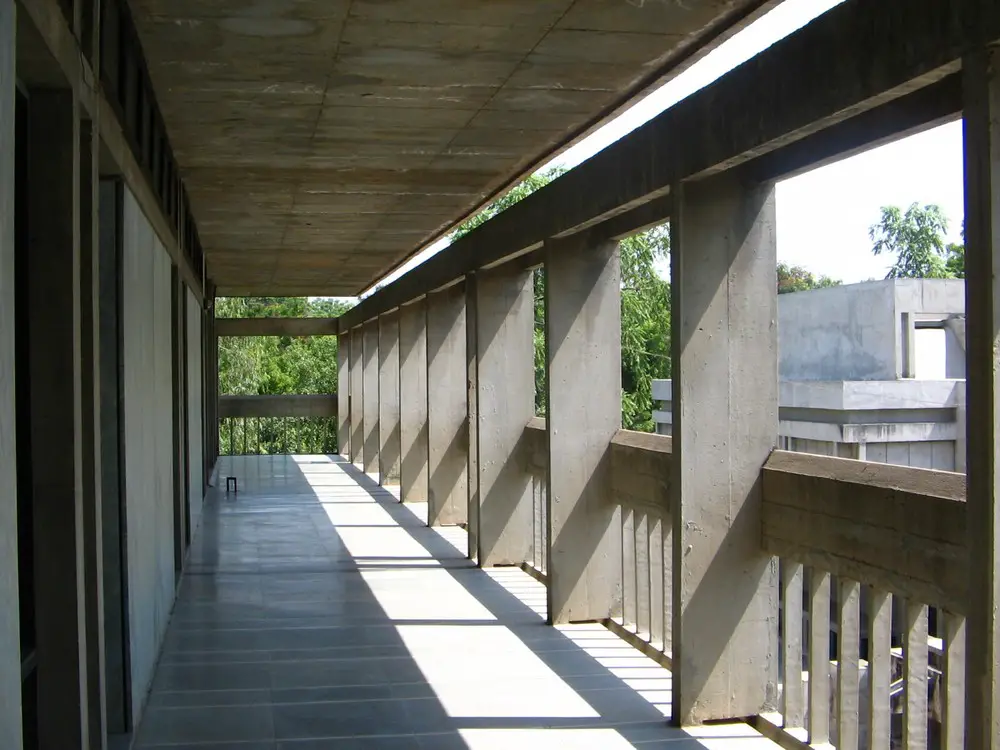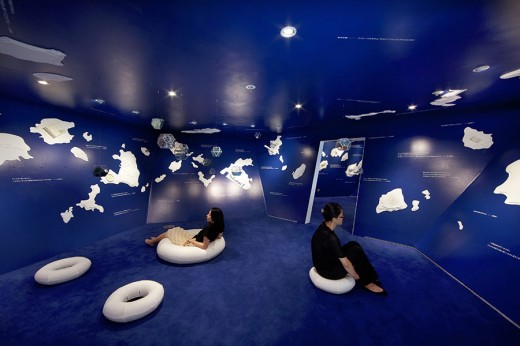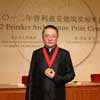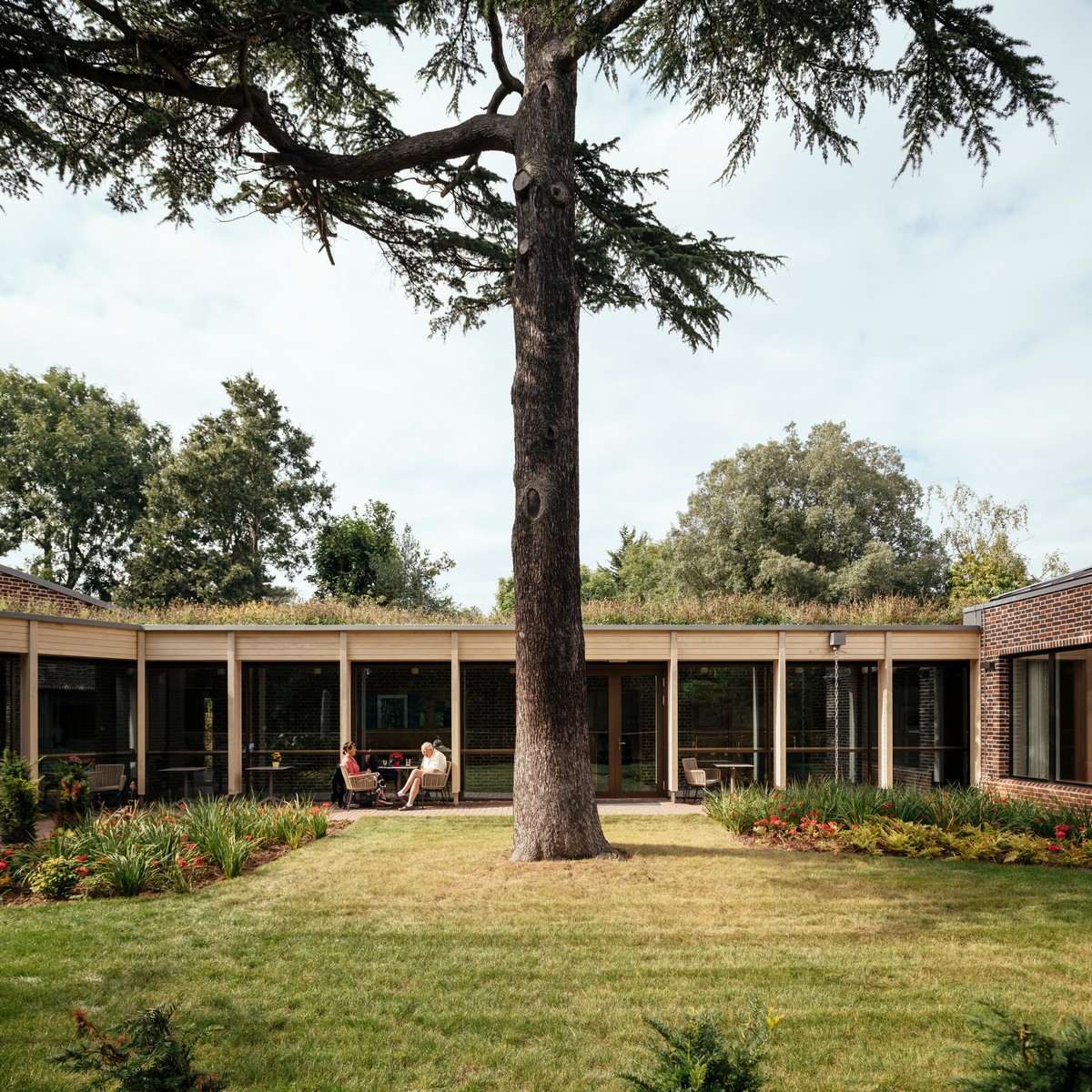Pritzker Architecture Prize 2018 Winner, Balkrishna Doshi Award, Architects, Jury News
Pritzker Architecture Prize 2018 Winner
Balkrishna Doshi Wins International Architecture Award News – Lecture in Toronto
Aug 16, 2018
New Chair of The Pritzker Architecture Prize Jury
The Hyatt Foundation appoints Justice Stephen Breyer as Chair of the Pritzker Architecture Prize Jury following the retirement of the most recent Chair, Glenn Murcutt, announced Tom Pritzker, Chairman.
New Chair of The Pritzker Architecture Prize Jury
May 4, 2018
Lecture by Pritzker Architecture Prize 2018 Winner
Balkrishna Doshi to lecture in Toronto
The Daniels Faculty to host the 2018 Pritzker Architecture Prize Laureate Lecture: “Paths Uncharted” with Balkrishna Doshi on May 16
Toronto, Canada – The University of Toronto’s John H. Daniels Faculty of Architecture, Landscape, and Design in partnership with The Pritzker Architecture Prize is honoured to welcome Professor Balkrishna Doshi, the 2018 Laureate of the Pritzker Architecture Prize, to present the public lecture “Paths Uncharted” on Wednesday, May 16, 2018. The lecture will take place at the school’s new home: the Daniels Building at One Spadina Crescent.
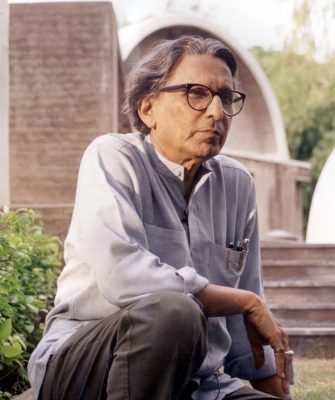
Balkrishna Doshi photo courtesy of VSF
The public is invited to participate in this educational initiative, which aims to heighten discussion and debate around architecture, stimulate awareness of work in the field, and inspire greater creativity within the architectural profession. Professor Doshi’s lecture will be recorded and streamed live on Facebook and Instagram via @UofTDaniels. Following the event, the recording will be made available on the Daniels Faculty’s YouTube channel, youtube.com/UofTDaniels.
The Pritzker Architecture Prize Laureate Lecture will be one of the debut events hosted by the Daniels Faculty in its new building, and provides a preview of the scale and caliber of future lectures, conferences, and exhibitions. Designed by the Boston-based architecture firm NADAAA in collaboration with ERA Architects and Adamson & Associates, the Daniels Building is now in the final stages of restoration, renovation, and reinvention.
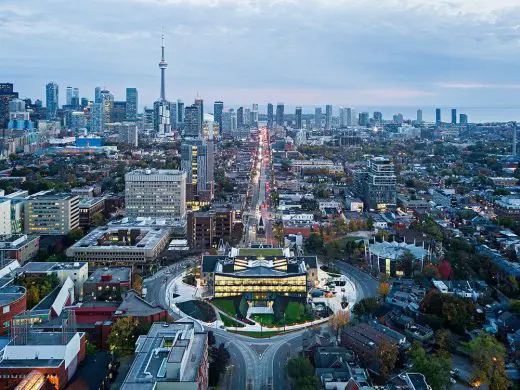
Balkrishna Doshi building photo courtesy of The Hyatt Foundation / The Pritzker Architecture Prize
With renowned programs in architecture, art, landscape architecture, and urban design, the Daniels Faculty is a hub for interdisciplinary education, research and outreach focused on the making of more environmental, beautiful, and socially sustainable cities. Located in downtown Toronto on the western edge of U of T’s St. George Campus, this dynamic laboratory for research and creative practice is home to many of Canada’s most innovative architects, landscape architects, artists, curators, and urban designers.
This year marks the 40th anniversary of the Pritzker Prize, and the first time that the international award will be presented in Canada. Its purpose is to honor annually a living architect whose built work demonstrates a combination of those qualities of talent, vision and commitment, which has produced consistent and significant contributions to humanity and the built environment through the art of architecture.
Mar 7, 2018
Pritzker Architecture Prize 2018 Winner News
Balkrishna Doshi – 2018 Pritzker Architecture Prize
His work in architecture to affect humanity is deeply personal, responsive, and meaningful.
Professor Balkrishna Doshi, of India, has been selected as the 2018 Pritzker Architecture Prize Laureate, announced Tom Pritzker, Chairman of Hyatt Foundation, which sponsors the award that is known internationally as architecture’s highest honor.
Architect, urban planner, and educator for the past 70 years, Doshi has been instrumental in shaping the discourse of architecture throughout India and internationally. Influenced by masters of 20th-century architecture, Charles-Édouard Jeanneret, known as Le Corbusier, and Louis Khan, Doshi has been able to interpret architecture and transform it into built works that respect eastern culture while enhancing the quality of living in India. His ethical and personal approach to architecture has touched lives of every socio-economic class across a broad spectrum of genres since the 1950s.
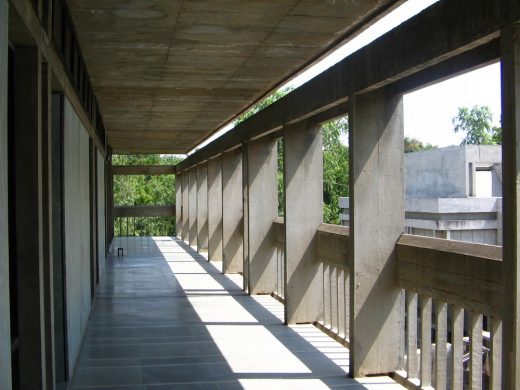
Institute of Indology photo courtesy of VSF
“My works are an extension of my life, philosophy and dreams trying to create treasury of the architectural spirit. I owe this prestigious prize to my guru, Le Corbusier. His teachings led me to question identity and compelled me to discover new regionally adopted contemporary expression for a sustainable holistic habitat,” comments Doshi. He continues, “with all my humility and gratefulness I want to thank the Pritzker Jury for this deeply touching and rewarding recognition of my work. This reaffirms my belief that, ‘life celebrates when lifestyle and architecture fuse.’”
Doshi’s architecture explores the relationships between fundamental needs of human life, connectivity to self and culture, and understanding of social traditions, within the context of a place and its environment, and through a response to Modernism. Childhood recollections, from the rhythms of the weather to the ringing of temple bells, inform his designs. He describes architecture as an extension of the body, and his ability to attentively address function while regarding climate, landscape, and urbanization is demonstrated through his choice of materials, overlapping spaces, and utilization of natural and harmonizing elements.
“Professor Doshi has said that ‘Design converts shelters into homes, housing into communities, and cities into magnets of opportunities,” comments Mr. Pritzker. “The life’s work of Balkrishna Doshi truly underscores the mission of the Prize—demonstrating the art of architecture and an invaluable service to humanity. I am honored to present the 40th anniversary of this award to an architect who has contributed more than 60 years of service to us all.”
The architect designed Aranya Low Cost Housing (Indore, 1989), which presently accommodates over 80,000 individuals through a system of houses, courtyards and a labyrinth of internal pathways. Over 6,500 residences range from modest one-room units to spacious homes, accommodating low and middle-income residents. Overlapping layers and transitional areas encourage fluid and adaptable living conditions, customary in Indian society.
Doshi´s architecture is both poetic and functional. The Indian Institute of Management (Bangalore, 1977-1992), inspired by traditional maze-like Indian cities and temples, is organized as interlocking buildings, courts and galleries. It also provides a variety of spaces protected from the hot climate. The scale of masonry and vast corridors infused with a campus of greenery allow visitors to be simultaneously indoors and outdoors. As people pass through the buildings and spaces, Doshi invites them to experience their surroundings and also suggests the possibility of transformation.
The 2018 Jury Citation states, in part: “Over the years, Balkrishna Doshi has always created an architecture that is serious, never flashy or a follower of trends. With a deep sense of responsibility and a desire to contribute to his country and its people through high quality, authentic architecture, he has created projects for public administrations and utilities, educational and cultural institutions, and residences for private clients, among others.” The Jury continues, “Doshi is acutely aware of the context in which his buildings are located. His solutions take into account the social, environmental and economic dimensions, and therefore his architecture is totally engaged with sustainability.”
His studio, Sangath (Ahmedabad, 1980), translates to “moving together.” The placement of communal spaces, including a garden and outdoor amphitheater, highlights Doshi’s regard for collaboration and social responsibility. Vaulted roofs, porcelain mosaic tile coverings, grassy areas, and sunken spaces mitigate extreme heat. The mosaic tile detail is echoed in the tortoise-shell inspired roof of Amdavad Ni Gufa (Ahmedabad, 1994), an undulating, cave-like, ferro-cement art gallery, positioned underground, featuring works of Maqbool Fida Husain.
Other notable works include academic institution Centre for Environmental Planning and Technology (CEPT University) (Ahmedabad, 1966-2012); cultural spaces such as Tagore Memorial Hall (Ahmedabad, 1967), the Institute of Indology (Ahmedabad, 1962), and Premabhai Hall (Ahmedabad, 1976); housing complexes Vidhyadhar Nagar Masterplan and Urban Design (Jaipur, 1984) and Life Insurance Corporation Housing or “Bima Nagar” (Ahmedabad, 1973); and private residence Kamala House (Ahmedabad, 1963), among many others.
“Every object around us, and nature itself—lights, sky, water and storm—everything is in a symphony,” explains Doshi. “And this symphony is what architecture is all about. My work is the story of my life, continuously evolving, changing and searching…searching to take away the role of architecture, and look only at life.”
Doshi is the 45th Pritzker Prize Laureate, and the first to hail from India. The 2018 Pritzker Architecture Prize ceremony commemorates the 40th anniversary of the accolade, and will take place at the Aga Khan Museum in Toronto, Canada, this May. The Laureate will present a public lecture, in partnership with the John H. Daniels Faculty of Architecture, Landscape, and Design at the University of Toronto on May 16, 2018.
Pritzker Prize Architects : main page with current winner information
RCR Arquitectes Receive the 2017 Pritzker Architecture Prize
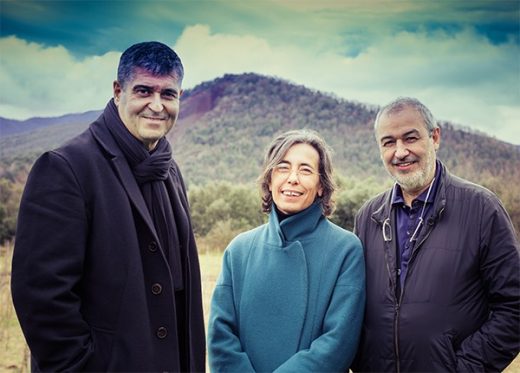
Pritzker Architecture Prize 2017 Laureates
Location: Chicago, Illinois, USA
Pritzker Architecture Prize Information
Pritzker Prize 2015 – Frei Otto selected as the 2015 Pritzker Architecture Prize
Ruta del Peregrino, Jalisco – Alejandro Aravena (Elemental) Joint Project
Pritzker Architecture Prize Winner 2014
2014 Pritzker Architecture Prize Laureate : Shigeru Ban architect
A key building by this architect: Centre Pompidou-Metz, France:
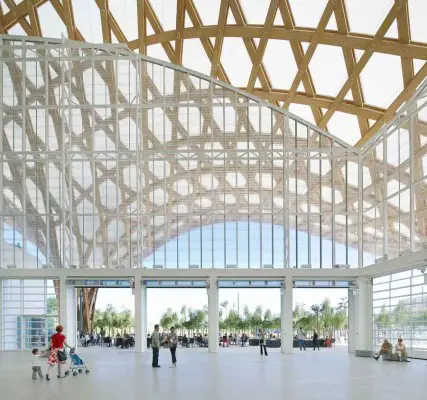
photo : Roland Halbe
Shigeru Ban, a Tokyo-born, 56-year-old architect with offices in Tokyo, Paris and New York, is rare in the field of architecture. He designs elegant, innovative work for private clients, and uses the same inventive and resourceful design approach for his extensive humanitarian efforts. For twenty years Ban has traveled to sites of natural and man-made disasters around the world, to work with local citizens, volunteers and students, to design and construct simple, dignified, low-cost, recyclable shelters and community buildings for the disaster victims.
Pritzker Architecture Prize Winner 2013
Toyo Ito architect, Japan
Toyo Ito, a 71 year old architect whose architectural practice is based in Tokyo, Japan, will be the recipient of the 2013 Pritzker Architecture Prize, it was announced today by Thomas J. Pritzker, chairman of The Hyatt Foundation which sponsors the prize. Ito is the sixth Japanese architect to become a Pritzker Laureate — the first five being the late Kenzo Tange in 1987, Fumihiko Maki in 1993, Tadao Ando in 1995, and the team of Kazuyo Sejima and Ryue Nishizawa in 2010.
Toyo Ito architect:

photo courtesy of Toyo Ito & Associates, Architects
Pritzker Prize Citation 2013 – Toyo Ito
Pritzker Architecture Prize – Past Winners
Pritzker Prize 2012 won by architect Wang Shu
Pritzker Prize 2012 winner : Wang Shu
Pritzker Prize 2011 won by architect Eduardo Souto de Moura
Pritzker Prize 2011 Citation from the Jury + The Jury + Eduardo Souto de Moura information
Pritzker Prize 2010 winner : Eduardo Souto de Moura
Pritzker Prize 2010 won by architects SANAA
SANAA, architects
Pritzker Prize 2009 won by architect Peter Zumthor
Peter Zumthor
Zaha Hadid architect : Pritzker Architecture Prize Jury member
Pritzker Architecture Prize Laureate 2010 : Citation from the Jury + The Jury
Key Architecture Awards
World Architecture Festival Awards
AR Awards for Emerging Architecture
Comments / photos for the Pritzker Architecture Prize 2018 Winner – page welcome

